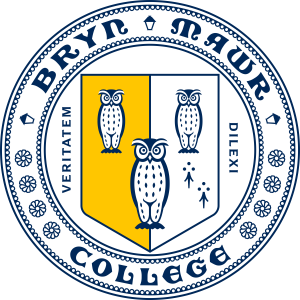- Instructor of record: Dale Booth
- Instructor of record: Kalala Ngalamulume
- Instructor of record: Dale Booth
Migration and borderlands dominate headlines as well as the everyday experiences of millions of people around the world, as vast numbers of human bodies move through spaces interrupted by a range of disputed and regulated natural barriers and barricades.
This course will situate our current transnational conjuncture in the long durée of global migration engendered by developments at the turn of the 16th century, focusing on the migration of indentured and contract labor migration from the Indian subcontinent to the Pacific and Indian Oceans, the Persian Gulf, Africa, the Caribbean, the Americas, Britain, and Europe. Some key questions we will explore are: to what degree have techniques of governance (measuring, surveilling) practiced and routinized through the various colonial empires of the 19th and 20th centuries informed the production and circulation of knowledge (specifically academic disciplines like History) as well as the naturalization of analytical and descriptive categories like labor, race and class -- and vice versa? Moreover, to what degree have intertwined technologies and protocols of governance and knowledge-production contributed to obscuring gendered migration, but also the effects of this gendering (hidden in plain sight) for women?
The first half of this course focuses on some of the larger framing concepts and assumptions around migration in the making of the contemporary world, and around gender in modern migration. The readings and other assignments for the second half of the semester will be developed collectively by the class.
During the first half of the semester, the course will run as a reading- and writing-intensive History seminar, in which you’ll get ample opportunity to practice and develop your analytical skills, both in writing and orally in discussion. During the second half of the course, there will be fewer collective readings and more emphasis on individual and group research assignments. The culminating assignment is a collaborative exploration and analysis of aspects of gender and migration from and to particular sites at particular times (details to be announced).
This course will situate our current transnational conjuncture in the long durée of global migration engendered by developments at the turn of the 16th century, focusing on the migration of indentured and contract labor migration from the Indian subcontinent to the Pacific and Indian Oceans, the Persian Gulf, Africa, the Caribbean, the Americas, Britain, and Europe. Some key questions we will explore are: to what degree have techniques of governance (measuring, surveilling) practiced and routinized through the various colonial empires of the 19th and 20th centuries informed the production and circulation of knowledge (specifically academic disciplines like History) as well as the naturalization of analytical and descriptive categories like labor, race and class -- and vice versa? Moreover, to what degree have intertwined technologies and protocols of governance and knowledge-production contributed to obscuring gendered migration, but also the effects of this gendering (hidden in plain sight) for women?
The first half of this course focuses on some of the larger framing concepts and assumptions around migration in the making of the contemporary world, and around gender in modern migration. The readings and other assignments for the second half of the semester will be developed collectively by the class.
During the first half of the semester, the course will run as a reading- and writing-intensive History seminar, in which you’ll get ample opportunity to practice and develop your analytical skills, both in writing and orally in discussion. During the second half of the course, there will be fewer collective readings and more emphasis on individual and group research assignments. The culminating assignment is a collaborative exploration and analysis of aspects of gender and migration from and to particular sites at particular times (details to be announced).
- Instructor of record: Madhavi Kale
Instruction Mode: Hybrid: In-Person and Remote
Class Meeting Dates and Times: MTh 2:40-4
Remote details: Some real-time/synchronous participation required.
- Instructor of record: Ignacio Gallup-Diaz
- Instructor of record: Sharon Ullman
- Instructor of record: Sharon Ullman
- Instructor of record: Dale Booth
- Instructor of record: Kalala Ngalamulume
HISTORY 357: Topics in British Empire
Decolonizing Historical Practice
Spring 2021
W 2-4
This reading-, writing-, and discussion-intensive advanced History seminar explores the colonial routes/roots of modern historical practice (and its institutions, including not only the nation-state but also K-12 and post-secondary curricula and other public and non-academic sites of production) along with anti-colonial, post-colonial, and de-colonial critiques of them enunciated from the late-18th century through the present.
The course traces genealogies of the current fad for “decolonizing” knowledge-production through a handful of sites and interlocutors from that empire on which in its heyday the sun was alleged never to set and as well as from its successor-states: most notably the Anglophone Caribbean, India, and Britain.
Decolonizing Historical Practice
Spring 2021
W 2-4
This reading-, writing-, and discussion-intensive advanced History seminar explores the colonial routes/roots of modern historical practice (and its institutions, including not only the nation-state but also K-12 and post-secondary curricula and other public and non-academic sites of production) along with anti-colonial, post-colonial, and de-colonial critiques of them enunciated from the late-18th century through the present.
The course traces genealogies of the current fad for “decolonizing” knowledge-production through a handful of sites and interlocutors from that empire on which in its heyday the sun was alleged never to set and as well as from its successor-states: most notably the Anglophone Caribbean, India, and Britain.
- Instructor of record: Madhavi Kale
- Instructor of record: Ignacio Gallup-Diaz
- Instructor of record: Sharon Ullman
- Instructor of record: Ignacio Gallup-Diaz
